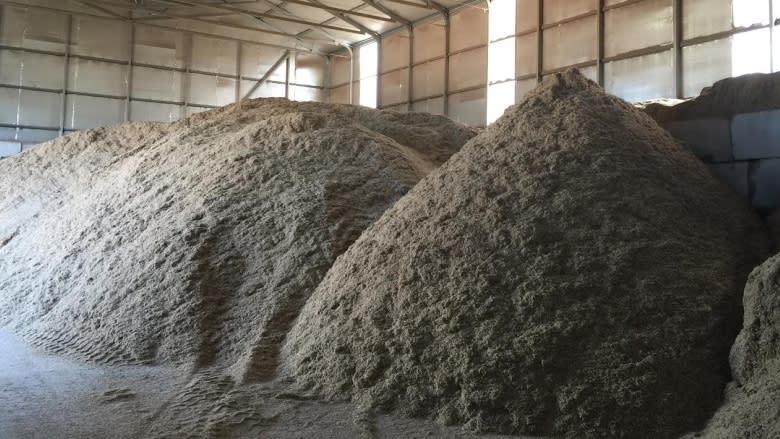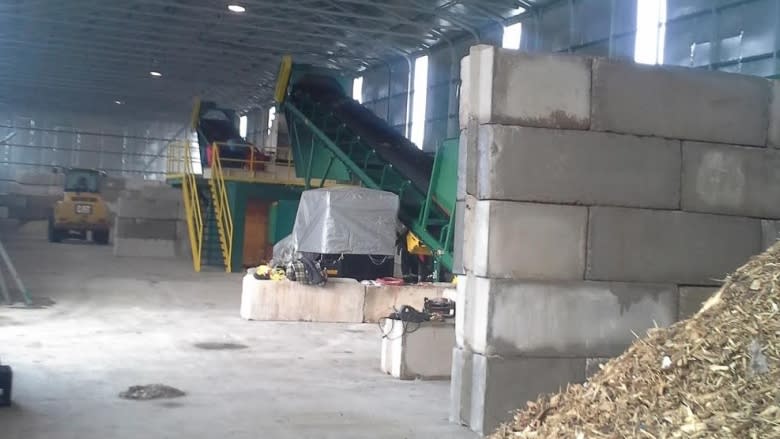Halifax C and D Recycling grind up debris to make cow beds
Building a home or renovating a room can create a lot of debris but a woman from Mount Uniacke has come up with a way to put some of that waste to work making cows more comfortable.
Lise Leblanc has been helping farmers solve their problems for 30 years.
About three years ago, many were complaining about the high cost and growing shortage of sawdust and wood chips.
Farmers need it to provide bedding for their animals. Dairy operations need plenty of it every week to give cows a comfortable place to rest.
That's where Leblanc comes in.
She also has an interest in finding ways to turn waste into resources.
During a visit to Halifax C and D Recycling for another project, she noted just how much wallboard and lumber the company was stockpiling.
At the time the wood was being sold for fuel, the wallboard was being shipped to New Brunswick to be turned back into usable wallboard.
Leblanc sold the recycler on a plan to crush and mix the two to create a soft surface for cows to rest on.
She claims the gypsum in the wallboard helps keep the wood dryer and reduces the amount of bacteria created, but it's also useful when spread on fields after the cows are through with it.
There are now 40 farms receiving regular shipments from the Halifax C and D Recycling Plant in Milford where the wallboard and wood is crushed and mixed.
Leblanc said farmers are pleased with the material.
"The comments we get back is the animals really like to lie on it," she said.
"It's easy to work with. It keeps their stalls dry. It's really absorbent and it's really easy to clean out of the stall. One of the biggest benefits is that it's available to them."
Waste diverted
According to testing, she said cows spent more time on the construction mixture than sawdust.
"The longer a cow lays down, the happier that cow is," said Leblanc. "The happier the cow is, the more milk she produces, so we want to make sure the cow liked to lie on it."
Bob Wilson is the owner of Bovidae farms in Falmouth. It was one of the first dairy farms to start using the construction waste mixture.
Although he wasn't ready to say his cows were happier and produced more milk, he was satisfied with it.
"It works great. I really like it," he said.
Wilson said he was willing to try it because his usual supply of sawdust from a local lumber yard was being used for other purposes.
"They're burning all that material," he said. "And other mills are selling it to the wood pellet industry. And so it was getting expensive and it was getting hard to get."
He considered the new material just as good, if not better.
"The availability is there. The product is a good product. Cows like it. Stays on the stalls a little better. It's kind of a win-win all around."
That is also the way Leblanc saw it.
"We diverted waste from a landfill," she said. "We ensured it was safe. And it worked well so it's a great sustainable program that's a home-grown success."
She is hoping to get other farmers to sign on. As many as 10 tractor trailer loads leave the plant every week.
"Once we get 100 per cent of the farmers on, we will potentially be able to divert 48 soccer fields, one metre high," she said.
"That is the final goal — about 90,000 tonnes."




